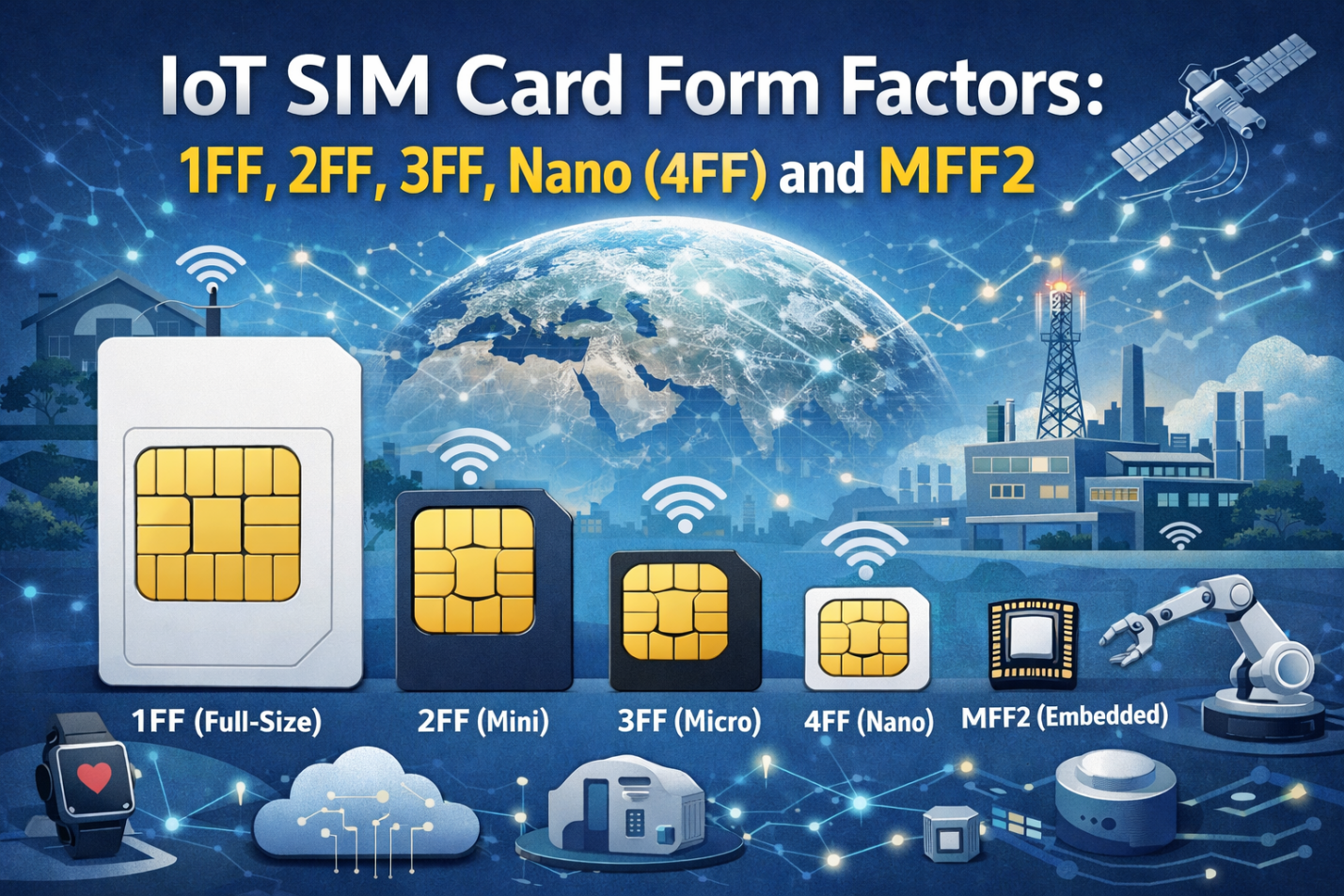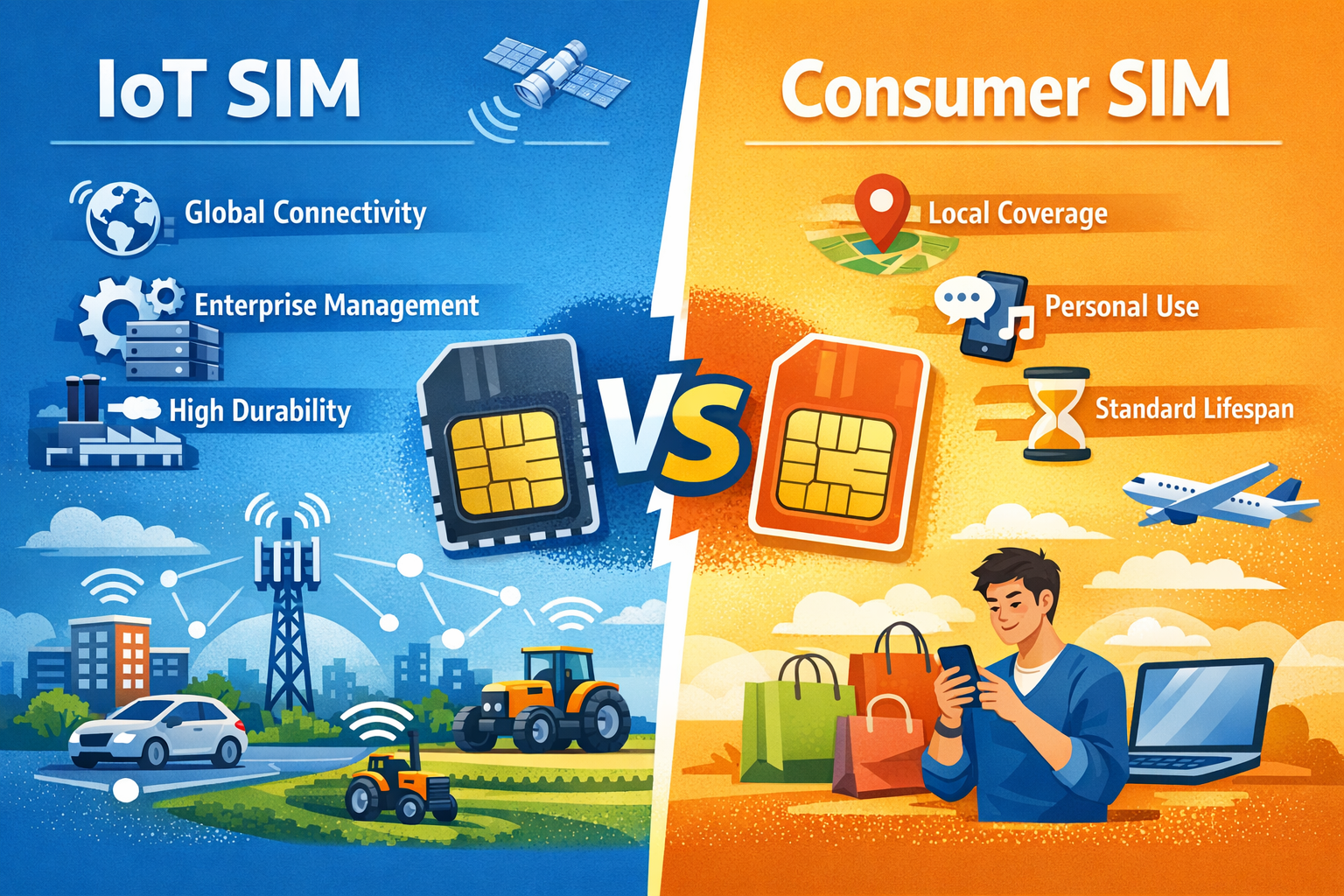Introduction
The global energy sector is undergoing a profound digital transformation. Utilities around the world are shifting from traditional metering systems to smart metering solutions that enable better efficiency, real-time monitoring, and improved customer experience. Among these technologies, smart gas metering has emerged as a critical component in building smart cities and modern utility infrastructures.
At the heart of smart gas metering lies one key enabler: IoT SIM cards. These specialized SIM cards ensure reliable, secure, and cost-effective connectivity for millions of smart meters deployed across urban and rural landscapes. Without connectivity, smart gas meters cannot transmit usage data, enable remote monitoring, or support predictive maintenance.
This blog explores the synergy between smart gas metering systems and IoT SIM cards, focusing on how connectivity and accuracy are ensured in real-world deployments.
What Is Smart Gas Metering?
Smart gas metering is an advanced utility management system that replaces traditional manual gas meters with connected, digital devices capable of:
- Measuring gas consumption with higher accuracy
- Transmitting data automatically to utility providers
- Allowing real-time monitoring and billing
- Detecting leaks or irregular usage patterns
- Supporting demand-response strategies for better energy management
Unlike conventional meters, which require human operators to manually record consumption, smart gas meters leverage IoT technologies to automate data collection and streamline operations. This transformation reduces costs, improves transparency, and enhances safety for both utility providers and end-users.
Why Do Smart Gas Meters Need IoT SIM Cards?
Smart gas meters generate vast amounts of data that must be transmitted securely and reliably to central utility platforms. To achieve this, smart meters require robust connectivity. IoT SIM cards (also known as M2M SIM cards) are purpose-built to meet these requirements.
Here’s why IoT SIM cards are essential for smart gas metering systems:
- Reliable Connectivity
Smart gas meters are often deployed across wide geographic areas, from dense urban neighborhoods to remote rural regions. IoT SIM cards ensure uninterrupted connectivity by supporting multiple mobile networks and providing coverage even in hard-to-reach locations. - Real-Time Data Transmission
Accuracy in billing and monitoring depends on real-time data collection. IoT SIM cards enable smart meters to transmit gas consumption data instantly to utility servers, reducing errors and enabling precise billing. - Remote Monitoring and Control
With IoT SIM cards, utilities can remotely monitor usage, detect leaks, and even shut off meters in case of emergencies. This capability significantly improves safety and reduces operational costs. - Scalability
Utility companies often deploy thousands, if not millions, of smart gas meters. IoT SIM cards offer scalable connectivity solutions, making it easier to manage large-scale deployments without compromising performance. - Security
IoT SIM cards are designed with encryption and authentication mechanisms that safeguard sensitive consumer data against cyber threats, ensuring compliance with data protection regulations.
The Role of IoT SIM Cards in Smart Gas Metering
IoT SIM cards are more than just connectivity enablers—they serve as the backbone of the entire smart gas metering ecosystem. By integrating IoT SIM cards into smart meters, utilities gain access to advanced features that optimize performance, improve service delivery, and reduce operational costs.
1. Enabling Automated Meter Reading (AMR)
Traditionally, gas companies relied on human operators to manually record gas consumption from household or industrial meters. This process was slow, error-prone, and costly. IoT SIM cards make Automated Meter Reading (AMR) possible, allowing smart meters to transmit data directly to utility providers in real-time.
2. Supporting Advanced Metering Infrastructure (AMI)
Beyond AMR, IoT SIM cards support Advanced Metering Infrastructure (AMI), a two-way communication system between utilities and consumers. Through AMI, utilities can:
- Monitor gas consumption in real-time
- Send usage alerts to consumers
- Implement prepaid or pay-as-you-go billing models
- Optimize supply and demand balance
3. Facilitating Predictive Maintenance
IoT SIM-enabled smart gas meters continuously send data to central platforms. By analyzing this data, utilities can predict potential equipment failures, detect leaks early, and schedule preventive maintenance before major issues occur.
4. Improving Customer Experience
With IoT SIM cards, consumers benefit from accurate billing, transparent consumption tracking, and leak detection alerts. This level of transparency builds trust and reduces disputes between utilities and end-users.
Ensuring Accuracy in Smart Gas Metering
Accuracy is one of the most critical aspects of smart gas metering. Consumers expect fair billing, and regulators demand compliance with strict measurement standards. IoT SIM cards play a pivotal role in ensuring accuracy by enabling fast, reliable, and secure data transmission.
1. Real-Time Data Transmission
Delays in data transmission can result in inaccurate billing cycles. IoT SIM cards eliminate this issue by ensuring data is transmitted instantly, reducing the risk of errors caused by manual inputs or time lags.
2. Data Integrity and Encryption
IoT SIM cards use secure communication protocols such as MQTT over TLS/SSL to maintain data integrity. Encrypted communication ensures that gas consumption data cannot be tampered with during transmission.
3. Redundancy Through Multi-Network Support
To maintain accuracy, data must not be lost during transmission. IoT SIM cards that support multi-network roaming automatically switch to the strongest available network, ensuring uninterrupted communication even in weak-signal areas.
4. Compliance with Standards
Utility providers are subject to strict regulations, such as OIML (International Organization of Legal Metrology) standards for gas metering. IoT SIM cards help utilities stay compliant by supporting precise, standardized data transfer mechanisms.
Ensuring Connectivity for Large-Scale Deployments
Connectivity is just as important as accuracy. Smart gas meters cannot function effectively without a stable and scalable communication infrastructure. IoT SIM cards address this challenge through several unique features:
1. Global Coverage with Roaming SIMs
For multinational utilities or equipment vendors, IoT SIM cards provide global connectivity with roaming capabilities across multiple operators. This is especially valuable for gas meter manufacturers who export devices worldwide.
2. Network Resilience
IoT SIM cards support 2G, 3G, 4G, LTE-M, and NB-IoT technologies, ensuring compatibility with different infrastructures. In regions where 2G networks are being phased out, LTE-M and NB-IoT provide low-power, long-range connectivity options.
3. Scalability with IoT Platforms
IoT SIM cards often come with centralized management platforms that allow utilities to monitor thousands of meters, activate or deactivate SIMs remotely, and optimize data usage for cost savings.
4. eSIM and Remote Provisioning
Emerging technologies like eSIM (embedded SIM) allow utilities to switch operators without physically replacing SIM cards. This flexibility ensures long-term connectivity for meters deployed in the field for 10–15 years.
Industry Applications of Smart Gas Metering with IoT SIM Cards
The combination of smart gas metering systems and IoT SIM cards has found widespread applications across industries and regions. These use cases demonstrate how connectivity transforms utility operations and consumer experiences.
1. Smart Cities
In smart cities, utilities are moving toward fully connected infrastructures where water, electricity, and gas meters are digitized. IoT SIM-enabled gas meters play a critical role in ensuring sustainable urban development by:
- Providing real-time consumption data for city planners
- Supporting energy efficiency initiatives
- Detecting leaks to reduce waste and environmental hazards
2. Utility Companies and Energy Providers
Utility companies benefit most directly from smart gas metering. With IoT SIM cards, they can:
- Automate billing and reduce human errors
- Implement dynamic pricing models based on usage patterns
- Improve demand forecasting for better supply chain management
3. Industrial Applications
Manufacturing plants, chemical companies, and other industries that rely heavily on gas can use smart meters to optimize resource consumption. IoT SIM cards enable:
- Continuous monitoring of industrial gas usage
- Early detection of anomalies that may indicate safety risks
- Integration with industrial IoT platforms for efficiency
4. Residential Consumers
For households, the benefits of IoT SIM-enabled smart meters are significant:
- Transparent, accurate billing based on actual consumption
- Alerts for abnormal usage, helping prevent accidents
- Options for prepaid services to better manage budgets
Cost-Effectiveness and Scalability
When deploying smart gas metering systems, cost-effectiveness and scalability are top priorities for utility providers. IoT SIM cards offer unique advantages in both areas.
1. Lower Operational Costs
Manual meter reading requires a workforce, vehicles, and administrative overhead. By enabling automated meter reading (AMR), IoT SIM cards drastically reduce operational costs.
2. Flexible Data Plans
IoT SIM cards are typically available with flexible, low-data usage plans (e.g., a few MB per month per meter). This ensures that utilities only pay for the data they need, making it more affordable than traditional mobile subscriptions.
3. Bulk Procurement and Long-Term Contracts
Utility companies can negotiate bulk procurement deals with IoT SIM providers, further reducing costs. Long-term contracts ensure stable pricing over the lifetime of the meters, which can exceed a decade.
4. Scalability for Millions of Devices
IoT SIM platforms are designed to handle massive deployments. Whether utilities are rolling out 10,000 or 10 million meters, IoT SIMs provide centralized management, making it easy to activate, monitor, and scale operations.
Future Trends in Smart Gas Metering and IoT Connectivity
As technology continues to evolve, smart gas metering systems will become even more sophisticated. Several trends are shaping the future of this industry:
1. 5G and Ultra-Low Latency
With the rollout of 5G networks, IoT SIM cards will support ultra-low latency connections, enabling real-time monitoring and instant control of gas meters.
2. NB-IoT and LTE-M Adoption
Low-power wide-area network (LPWAN) technologies such as NB-IoT and LTE-M are increasingly being adopted for smart gas metering. These technologies offer extended battery life, deep indoor coverage, and cost-effective deployments.
3. AI and Predictive Analytics
Smart meters will not only collect data but also integrate with AI-powered analytics platforms. By analyzing consumption trends, AI can predict demand, detect anomalies, and suggest optimization strategies.
4. Blockchain for Secure Transactions
Blockchain technology may play a role in ensuring secure and transparent billing systems. Smart contracts can automate payments and build trust between utilities and consumers.
5. Sustainability and Green Energy
Governments and regulators are pushing for greener solutions. Smart gas meters, powered by IoT SIM cards, will support energy efficiency goals and help utilities reduce carbon footprints by minimizing gas leaks and wastage.
Conclusion: The Future of Smart Gas Metering with IoT SIM Cards
Smart gas metering is no longer a futuristic concept—it is a present-day necessity for utilities, governments, and consumers alike. As cities evolve into smart ecosystems, the demand for accurate, connected, and scalable gas metering solutions will only increase.
At the center of this transformation lies the IoT SIM card. By ensuring reliable connectivity, enabling real-time data transmission, and supporting advanced features like predictive maintenance and remote monitoring, IoT SIM cards have become the backbone of smart utility infrastructures.
The benefits are clear:
- For utilities, IoT SIM cards reduce costs, improve accuracy, and support large-scale deployments.
- For consumers, they provide transparency, accurate billing, and peace of mind.
- For regulators and governments, they ensure compliance with safety and efficiency standards while supporting sustainable energy management.
Looking ahead, the integration of 5G, NB-IoT, LTE-M, AI, and blockchain technologies will further enhance the value of smart gas metering systems. Utilities that embrace these innovations today will be better positioned to meet the challenges of tomorrow.
Call to Action
If your organization is exploring smart gas metering solutions, choosing the right IoT SIM card provider is critical to success. Reliable connectivity, flexible data plans, and long-term support are essential for building a cost-effective and future-proof system.
ZhongYi IoT specializes in providing high-quality, affordable IoT SIM cards designed for smart utilities, including gas, water, and electricity metering. With global coverage, scalable connectivity, and strong technical support, ZhongYi IoT helps businesses and utilities achieve seamless digital transformation.
👉 Contact ZhongYi IoT today to learn more about our IoT SIM card solutions and how we can support your smart gas metering projects. Together, we can build a smarter, safer, and more connected future.



